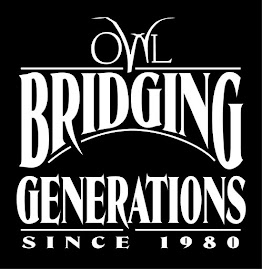Thursday, September 25, 2008
"You can't save what you don't earn"
Monday, September 22, 2008
Social Security and the Economy
Social Security and the Economy
Was your seatbelt fastened last week? This rollercoaster we have for an economy took us on quite a ride. Actually, the image of a rollercoaster is not exactly accurate. It presumes there is a track and there is clearly no track for this ride. It is wild, unpredictable, and not many of us are having fun. Also, we don’t know where it ends.
I’m not sure we know the lessons to be drawn yet, but one obvious observation is that the only hope for preventing a complete financial meltdown is the federal government. Ironic, isn’t? An administration that has spent seven years pushing deregulation and private market solutions now looks to government and taxpayers to save us from the consequences of those policies.
I’m not unhappy about this solution. I am hoping it will work. There will be many lessons to be learned but two are very relevant to women and to OWL. The first is that our whole economy is so global and so interrelated that “safe” investments aren’t so “safe” when the credit house of cards falls down. The second is that the approach to many problems must be collective, not individual. If you have read or listened to the columnists and commentators within the last week who make a living telling you how to have a comfortable retirement, you will have noticed that they have no advice in this market beyond “don’t retire now”. Little comfort for those already retired or about to be laid off.
The most secure solution for those retired or looking to retire is Social Security – a government-sponsored, guaranteed income program. Who would have predicted that!! Well, OWL for one. While the Bush Administration advocated for individual accounts and the advantages of passing on the account to your heirs if you died young, OWL was concerned about women and men out-living their retirement funds and advocated to keep Social Security a progressive, social insurance program. It is not polite to say “We told you so” but we did.
OWL has long advocated that an appropriate role for government is to provide universal retirement benefits through a social insurance program. Preserving, defending, and improving Social Security has been one of OWL’s major issues for the past twenty years. This past week demonstrates what OWL has maintained all along, that OWL’s agenda is not just good for women, it is good for everyone.
Ellen A. Bruce
President, OWL National Board
Wednesday, September 17, 2008
Sexism - Politics
Women candidates have been in the forefront this election year – first with Hillary Clinton running for the Democratic Presidential nomination and now with Sarah Palin nominated as the Republican Vice-Presidential choice.
The visibility of women in the political process is very positive for women for two reasons. First, it raises the public debate about what is sexist, and second, it offers the potential of having women’s policy issues debated and addressed.
Let me talk about sexism first. Some statements are clearly sexists such as a heckler shouting “iron my shirts” to Senator Clinton as she was campaigning. And some statements are clearly not sexist such as any candidate using the expression “…putting lipstick on a pig” when referring to another candidate’s policies. Sexism is very prevalent in our political and business dealings and a serious issue that hurts women of all ages. Twisting it for political gain belittles the issue and at a minimum is a cynical attempt to manipulate the vote of women. Understanding what is sexist and what isn’t is important to us.
What about asking a women with young children how she will handle being Vice President when reporters don’t ask male candidates that question? What about accusing women candidates of being “strident” or “shrill” or fawning over them because they are “cute” or “perky”. How are women running for office supposed to be both likeable and tough? The beauty of Sarah Palin on the Republican ticket is that it has silenced the conservative commentators. All of a sudden being the mother of a pregnant unwed teenager is not a reflection of the mother. Perhaps now we can put families off limits for the petty, vicious snipping that television passes off as news.
But let’s talk about the real issues women care about. What does the candidate, male or female, stand for? What policies will he or she support? As a woman, I would like to see more women in political life because I hope they will bring a sensitivity to the job founded in their life experiences – that they will support policies that help people who raise children and care for elders, who cannot afford health care and who have no place to live. I am not so naïve as to think that just because you are a woman you will support the OWL agenda and hopefully women generally don’t believe or vote that way. The true test of a candidate is whether they care about the issues you care about and will support the solutions you believe in.
So in this year of “women rising” let our voices be heard for what we believe in: access to high-quality, affordable health care, economic security, and dignity and respect for people of all ages and abilities and of course regardless of your gender.






